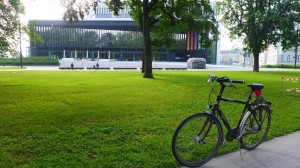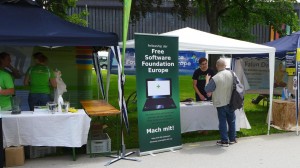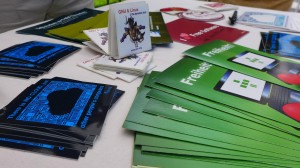Two pieces of software that I’m grateful for…
It’s I love Free Software Day again! …and again I have not written anything in advance. But there’s still time – in my timezone there still is almost an hour left before midnight. Plenty of time for a shout-out to two pieces of software that I hold dear.
Okular
First, I’d like to thank the developers of okular for writing the one PDF reader that I really like!
PDF readers are basically a commodity software: sure, everybody uses one, but nobody really notices it most of the time. Yet, okular was the first PDF reader that I really liked using. The user interface feels well designed (even more so if you think about the competition at the time I first encountered okular). It’s unobtrusive, and has so many small features that just clicked with me. Starting with the various selection modes, via the robust annotation support to the nice-looking presentation mode: every feature I use in this application works fabulously 😉
Thank you for the great work!
darktable
The application that finally made me warm up to a raw photo workflow is darktable.
Not that I shoot all my photos using the raw format of my camera (not even close). But darktable made processing and editing raw images easy and accessible enough for me to like it. Where before I would think “raw photography is a nice tool for professionals”, darktable made me actually prefer non-destructive raw photo editing over traditional image editors. And it’s getting better with each release. Not that I use that many of the features that darktable provides…
And it’s not just the application itself that I like: Every once in a while, I check in to see what’s new in the blog. It’s mostly about upcoming features and development topics. Yet I find it often contains interesting reads and glimpses into the process behind producing such a nice program.
Thank you for making a raw workflow application that I actually like!
Conclusion
So, that’s my picks for I love Free Software Day 2017. Two applications that could not be much farther apart, but both of which I am very fond of in a different way. Keep up the good work!




